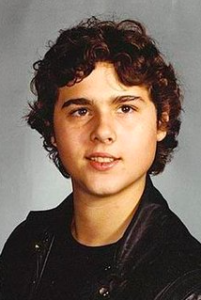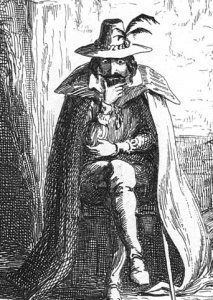THIS SERIES DEALS WITH SEXUAL ABUSE. PLEASE READ WITH CAUTION.
AN INTRODUCTION AND FURTHER DISCLAIMERS
MAY BE FOUND HERE.
O Lord God, author of all truth, who canst in no wise deceive, nor be deceived: Grant us, we beseech thee, a spirit of wisdom and fortitude, that, in thought, word, and deed, we may withstand all the crafts and assaults of the devil; through Christ our Lord. Amen.
Previous installments in this series: The Victims; The Monster and the Mirror

A Man of Good Repute
Fr. Karol Wojtyła spent a little over thirty years ministering in Communist Poland. He became a cardinal shortly after the Second Vatican Council. In 1976, while traveling in the US, he met a charming American priest who had been abruptly summoned to a dinner—his host didn’t know what languages Cardinal Wojtyła spoke, and the priest in question spoke five, so he had been tapped to translate if necessary. Thus began the Cardinal’s friendship with Fr. Theodore McCarrick. Two years later, Cardinal Wojtyła became Pope; he took the name John Paul II.
His Holiness took an interest in McCarrick’s career, and considered transferring him to a more prestigious see more than once in the 1990s. In itself, this was pretty natural. People have pointed out, often acidly, that McCarrick showed great talent as a fundraiser; but there was much more to it than that. He was charismatic, had a good (albeit false) moral reputation—and he could boast unusually high numbers of seminarians in the dioceses he governed. Especially at a time when the number of candidates for the priesthood was plummeting throughout the country, this would suggest not only administrative skill, but perhaps a gift for cultivating holiness.
So what did John Paul II really know about McCarrick, and when? Honestly, this still seems like a hard question to me, even after reading the report. To at least give it a fair framing, I’m going to start with Archbishop Gabriel Montalvo Higuera, the Apostolic Nuncio1 to the US from 1998 to 2005. That is, I’m starting with the investigation he conducted—or tried to, anyway.
The Misgivings of Cardinal O’Connor
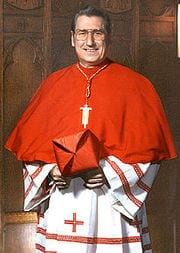
Cardinal John J. O’Connor (1920-2000), Archbishop of New York 1984-2000 (source).
In 1999, Cardinal O’Connor’s retirement was imminent. (Since Vatican II, bishops normally retire at age 75, though this is flexible depending on circumstances.) Pope John Paul II hinted early in the year that he was considering McCarrick as O’Connor’s successor—at the time, McCarrick was the Archbishop of Newark. Shortly thereafter, Cardinal O’Connor told the Nuncio he had reservations about the idea. Montalvo asked O’Connor to put these qualms in writing; he did so.
The cardinal hastened to explain he had no direct knowledge himself. Nonetheless, other bishops (whom he named) had told him of certain rumors about McCarrick.
Archbishop [McCarrick] frequently visited the [seaside] house and often arranged for seminarians to visit … one of whom shared the bed with the Archbishop. This became known and was a source of joking among the clergy.
… [S]ome problem did occur involving at least one person, perhaps a priest, and … Bishop Hughes handled that personally and secretly. I personally asked a priest psychologist of the Archdiocese of New York to speak with the psychiatrist who was treating at least one of the priests involved … Both the priest psychologist and the psychiatrist seem convinced that the priest or priests in treatment were victimized, willingly or unwillingly, in their inappropriate relationship with the then Bishop McCarrick … I did not really find my discussion with the priest psychologist or the findings of the psychiatrist to be definitely persuasive. At the same time, I could not dismiss their findings, because of the gravity of the allegations.
Cardinal O’Connor also pointed out McCarrick’s many talents and excellent record of service. Except for these rumors, said the cardinal, there was no stain on his reputation. And the rumors weren’t widespread. Even though they had been floating around for years. Even though O’Connor himself had made some inquiries among New Jersey bishops in ’96 and ’97, pursuing these rumors. And even though Dr. Richard Fitzgibbons (a practicing psychiatrist) and Msgr. James Cassidy (a priest psychologist from O’Connor’s own archdiocese) had both interviewed Priest 1, and both believed his accusations. Both men said as much to Priest 1’s bishop, Edward Hughes—of whom more in a moment.
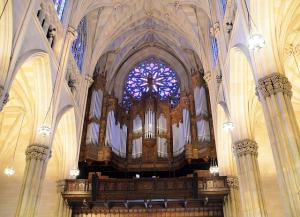
Now, Cardinal O’Connor was not McCarrick’s superior. He didn’t have the power to discipline a fellow bishop. But he still could have, and should have, written to the Nuncio as soon as there was a credible claim of misconduct, whether there was proof or not. A letter like this was too little, too late, especially with such a weak closing:
Your request of me has not been to assess the Archbishop’s overall activities, but only the unfortunate allegations described above. I should note, as perhaps germane … a major question or even criticism is raised about his seemingly incessant need to travel outside the Archdiocese to different parts of the world and in so doing subordinate the demands of the Archdiocese. … It is quite conceivable, however, that he has, by way of this travel, put all of his energies into Church business, in part as a way of displacing the use of that energy in the kinds of inappropriate activities described above.
… It has been my personal experience over many years that the truth is very difficult to determine in such complex cases. Obviously, however, while charity must prevail and the benefit of the doubt always given to the ‘accused,’ the good of souls and the reputation of the Church must be seriously considered … I cannot, therefore, in conscience, recommend His Excellency, Archbishop McCarrick for promotion to higher office … Nevertheless, I subject my comments to higher authority and most particularly our Holy Father. I would support unconditionally any appointment of our Holy Father … I must emphasize, finally, that it is conceivable that Archbishop McCarrick has never been given the opportunity to defend himself against these allegations.
From Priests’ Lips to Hughes’ Ears
O’Connor’s letter prompted Montalvo to do some digging of his own. He contacted four bishops, all currently or formerly active in New Jersey:
- Edward Hughes, McCarrick’s successor as Bishop of Metuchen.
- Vincent Breen, Hughes’ own successor as Bishop of Metuchen.
- John Mortimer Smith, a former auxiliary bishop in Newark), whom McCarrick consecrated.
- James McHugh, another former Newark auxiliary, and another that McCarrick consecrated.
Hughes and Smith had both retired before Archbishop Montalvo began making inquiries. Breen was active; McHugh had been transferred to a diocese in Kentucky. (Cardinal O’Connor had gleaned his information from all except Breen.) Bishop Breen said he knew little of McCarrick’s time at the Diocese of Metuchen, which was probably true. The other three, however, knew a great deal.
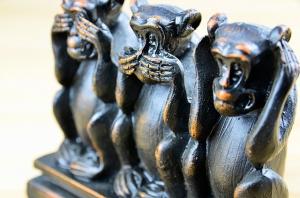
Bishop Hughes had received several reports of McCarrick’s sexual advances when he was serving at Metuchen. At minimum, Priests 1, 3, 4, and 6 from the report all told Hughes about McCarrick molesting them; 3 and 4 both said that his reaction, while they were speaking, suggested he had heard such accusations before. But, in his reply to the Nuncio, Hughes downplayed and misrepresented what he knew. He mentioned rumors, but said he had no evidence. He cast doubt on two accusers, 1 and 6, by pointing out that both were guilty of lapses themselves, adding that Priest 1 had “a history of blaming others for his own problems.” He did not mention any others.
This hear-no-evil conduct seems to have been a habit with Bishop Hughes. While Priest 1 was receiving treatment, Dr. Fitzgibbons wrote the bishop a letter, stating that he thought Priest 1 was telling the truth about McCarrick. This was in 1995; at least three priests had approached Hughes with allegations that McCarrick had harassed or assaulted them by this time. Yet he wrote in reply to Dr. Fitzgibbons,
[I]n your letter you make certain allegations that [Priest 1] has been the victim of sexual harassment in the seminary [and] the Diocese of Metuchen … I find these allegations very troublesome. I presume your conclusions about sexual harassment must be based solely on [Priest 1’s] statements. I would not want my silence in this matter to be interpreted as agreeing … At the present time, I do not have a sufficient factual basis for making such a determination.
“The Priest and the Prophet Have Erred Through Strong Drink”
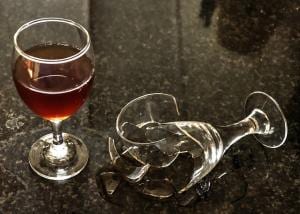
Bishops Smith and McHugh, aside from anything else they may have known, both committed a shocking omission. The two had been present at a small dinner which took place in 1990 in Newark. The guests included Smith and McHugh, McCarrick, Msgr. Dominic Bottino (who was then the Vocations Director for the Diocese of Camden), and an unidentified priest in his twenties. No one, apparently, breathed a word about this dinner for twenty-eight years. But in 2018, the investigation of McCarrick was in full swing, and Msgr. Bottino finally wrote to the Vatican.
McHugh and Bottino arrived late. The monsignor quickly got the impression that McCarrick was drunk. He and McHugh only wound up staying for about twenty minutes, but even that was long enough for McCarrick to pound the table and cry “I deserve New York!”, seemingly meaning the archdiocese. He also hinted that he expected word from Bottino about US episcopal appointments.
But mere drunkenness and impropriety didn’t make this dinner important. During the conversation, McCarrick began fondling the young priest’s crotch, in full view of both Msgr. Bottino and Bishop McHugh.
No sooner had we looked down nearly simultaneously, than we looked up simultaneously because McCarrick was talking. I remember seeing and looking at McHugh first and then looking at the young man, terrified. Then I looked over at Smith, and Smith saw what was happening by the angle of McCarrick’s arm, and by our reaction. McHugh then immediately and abruptly stood up, in a sort of panic, and said, “We have to leave.”
Msgr. Bottino explained that, except for his spiritual director, he never discussed it with anyone; he assumed no one would believe him. And he may have been correct. As the two men drove away, McHugh himself commended Bottino for “handl[ing] that well” and remarked, “sometimes the Archbishop says things and does things that are very ‘different.’”
Heaven only knows what happened to that poor young priest after that, immediately or in the long term. God have compassion on him.
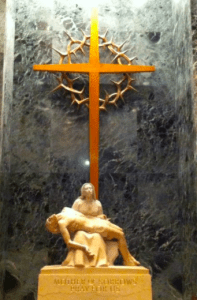
See No Evil
Years later, when Archbishop Montalvo wrote to them, Bishop McHugh lied outright: “I never witnessed any impropriety on the part of Archbishop McCarrick”. There is a sick, perhaps unintentional joke in McHugh’s letter as well. He mentions talking with Cardinal O’Connor; it seems His Eminence said Bishop Hughes was “not very informative” when asked about McCarrick.
Bishop Smith was slightly more evasive, but he too hid what he knew. He described himself as “saddened and shaken” that the Nuncio had even asked. He would speak no evil of McCarrick; indeed he was so flattering you might suspect blackmail. “During my years of residency at Sacred Heart Cathedral [1985-1991] … or subsequently, I have never heard anyone make a substantiated accusation of immoral behavior against Archbishop McCarrick nor have I any evidence of ‘serious moral weakness shown by Archbishop McCarrick.’” (He did confirm rumors about McCarrick’s habit of sleeping in the same bed with priests and seminarians throughout the 1980s. Smith explained this away as an innocuous expression of affection.)
What the Nuncio Did
Yet even these defective half-truths the bishops supplied to the Nuncio would seem to call for more investigation. Dr. Fitzgibbons was the obvious place to start. He had treated Priest 1 and believed he was credible. He had written a letter to the Congregation for Bishops, not only stating the accusations, but mentioning two more witnesses who confirmed Priest 1’s account. Bishop Hughes, though he cast aspersions on everything Fitzgibbons said, did give the doctor’s name to Montalvo. And Cardinal O’Connor had suggested the Nuncio interview two more people: Msgr. James Cassidy, whom Dr. Fitzgibbons had contacted for help with Priest 1; and Thomas Durkin, a lawyer who had participated in priestly misconduct cases in the Archdioceses of New York and Newark. Archbishop Montalvo’s work was cut out for him.
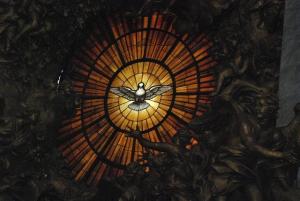
As far as I know, there’s no evidence that the Nuncio ever followed up with anyone, even the four bishops he had written to. Still less did he speak with Fitzgibbons, Cassidy, or Durkin. He said in a letter to Cardinal Re that he’d chosen “at least for the moment” not to contact Cassidy or Durkin “because doing so would seem to me to overstep the limits of legitimate confidentiality to which Archbishop McCarrick is entitled.”
The moon logic of that statement might make more sense with a miter on. McCarrick’s victims were entitled to dignity, but of course, he had already overstepped those limits. Too late to fix that. Besides which, what “confidentiality” was there to violate here? If the accusations had been false, it would have been McCarrick’s name they were smearing, not his privacy. And if they were true, how could McCarrick be “entitled” to get away with not only offenses against the Church, but crimes of the gravest kind?
I don’t want to be unjust to Archbishop Montalvo. Even with this imperfect information, he recommended against making McCarrick the next Archbishop of Washington; he should have done more, yes, but he was not a complete fool, nor was he morally bankrupt. The report says Pope John Paul II’s decision to promote McCarrick anyway shocked the Nuncio. Why did the Pope make that decision? Well …
Further installments: Pope John Paul II; Pope Benedict XVI; Pope Francis; The Venom of Viganò; Den of Thieves; Quo Vadis
1A Nuncio more or less equates with an ambassador.



